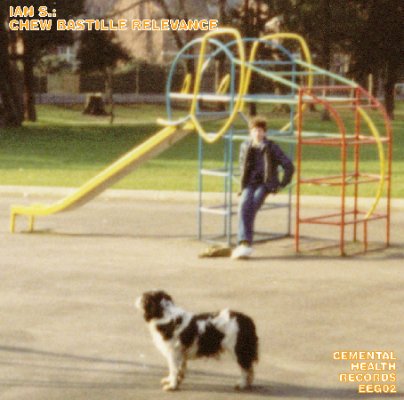
Chew Bastille Relevance
Ian S.
Cemental Health Records EEG02
Forged in the smithy of my soul (itís a joke! Itís a joke!).
Recorded at Ghetto, December 1982ĖFebruary 1983 except where noted;
produced by Ian Shuttleworth.
Mastered at Ghetto, February 1983, by Ian Shuttleworth.
Digitally remastered October 2004.
This title (P) 1982, 2004 Cemental Health Records.
Surprise, surprise: cover photo by Ian Shuttleworth.
Thanks again to Steve there and Steve here for faith,
and to all the toxic toxophilists.
A way a lone a last a loved a long the